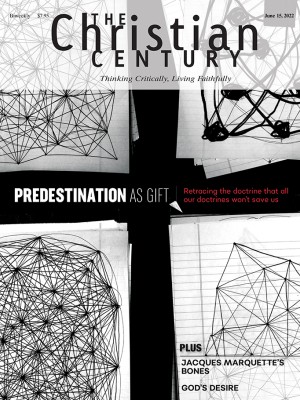July 3, Ordinary 14C (2 Kings 5:1-14)
At last the protests fade away and we come to seven little splashes in the Jordan river.
The story we find in 2 Kings 5 is of a mighty warrior with a shameful secret. Naaman’s skin is diseased in a way that would categorize him as unclean and unable to become clean. No weapon, no maneuver, no strategy of combat can change the degradation of his body. Not even the sacred rivers of his homeland can wash away the sting and shame of this malady. But royal power can at least conceal his wounds under the armor of his military might.
We do this to our wounds all the time. We cover them with armor of one kind or another. But the hurt remains, and the lingering pain can erode us from the inside out. Often, we assume that if we tell the truth about our wounds, we’ll be shunned or shut out. We fear a loss of community if we share our truth. We’re not necessarily wrong; there are whole churches that prefer surface-level relationships to honesty. We opt for concealment rather than risk the vulnerability that could lead to healing.
Read our latest issue or browse back issues.
God’s voice cuts through the hurt and fear: “If only my lord were with the prophet who is in Samaria!”
The good news in the text comes from the mouth of one who is counted among the shunned and degraded: a slave girl. Acquired during a raid, this child of God has been robbed of agency over her skin. Does she see a similar pain in her new “master?” Is that what leads her to speak with such compassion to her captor? We never learn. But it is her voice that bears the promise in this story: there is someone with the power to help you.
And he’s sending you to the river. So, wash. And be clean! It’s so clear and simple. So rich and baptismal. So not what Naaman is up for.
Between the promising words of the captive girl and the miraculous event of Naaman’s healing, there’s an awful lot of courtly back-and-forth movement, posturing, and pride. The general sends a letter to a king, the king tears his royal clothes, then the king is is rightly mocked by the court jester/prophet Elisha. As usual, God’s prophet has no time for regal allegiance or ritual panache. Go, wash up. That’s it.
“I’ve known rivers,” writes Langston Hughes. “Ancient, dusky rivers.” You can love a river without casting doubts upon the potential healing properties of other waters. But if your love for your homeland and home water is tainted by nationalism and militarism, as it is for Naaman, a simple thing becomes a tricky thing. Finding miracles in other waters, or through other people, is scary and unfamiliar. And washing up becomes a task too humble to be miraculous.
In this way, 2 Kings 5 is a comic text with a profound center. It’s hilarious how unwilling Naaman is to obey the simple commands of God’s messenger. We laugh in part because we understand his hesitancy. Or we groan, recalling how people in power over us have thrown tantrums while we repeatedly point out the simple actions that could make a situation better. This is all too familiar.
Thanks be to our God who moves in all the rivers of planet Earth, brings healing through humble actions, and speaks blessing through new relationships.
At last, the prideful protesting fades away and we come to seven little splashes in the Jordan River. And then, restored skin. It works! Go, wash. That’s it. And in Christ, the healing goes deeper. We come to the water to be healed of our pride, shame, and resistance. We come to have hope restored like new skin.
What about your river? Where are your healing waters?
What river have you crossed over the most in your lifetime? I grew up near the banks of the muddy Mississippi, filling and stacking sandbags when spring rains led to floods. Now, I cross the Spokane several times each day as it flows right through the center of town, rolling on to join the Columbia and eventually reaching the Pacific Ocean. These are waters called holy by many Indigenous people, who gather at the waterfalls and salmon runs to mark the seasons and give thanks to the Creator.
In an early scene of the musical Godspell, John the Baptist is baptizing people in a large city fountain. It’s a playful and joyous scene. Jesus arrives and says, “I wanna get washed up” To be washed up means to have failed out of society, to be degraded, a lost cause. In the context of baptism, however, being washed up means entering a way of life where our wounds are healed and our stories are sacred, wherever we’ve come from. Naaman balks at being washed up, and for good reason. It means the loss of all that he’s built to hide away his shame. It also means unlearning the ways of the colonizers. Elisha invites him to the river and the bath.
Thanks be to God who grants healing and blessing in all the rivers of Earth, who doesn’t let injustice and shame have the final word over our story or our skin, who speaks promise through unlikely voices.
We’ve known rivers. And because God moves in these waters, the rivers have known us. Held in that knowing and healed by God, we can move toward what is unfamiliar and trust we will find a blessing.






